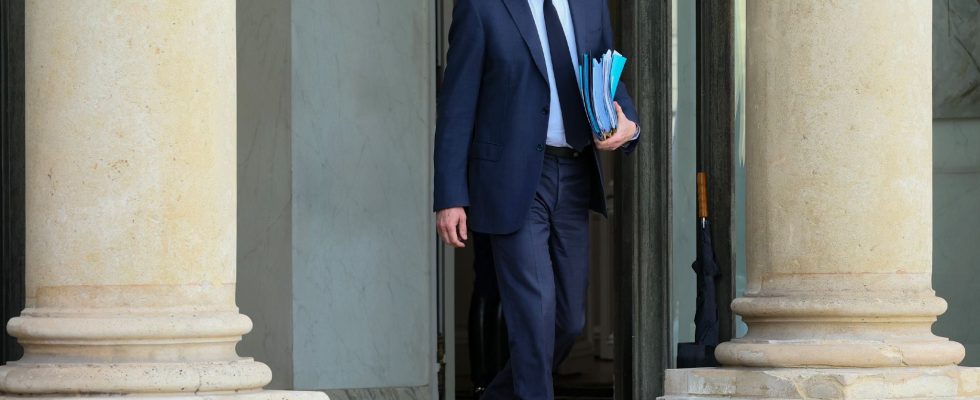When the time has come, the time has come, said Raymond Barre. The man whom Valéry Giscard d’Estaing nicknamed “the best economist in France” was obliged, just one month after his arrival at Matignon, to face the facts: “France is living beyond its means”, he insists. – he on September 22, 1976 in the television station, imposing a rigorous cure – the Barre plan – on French people stunned by the summer drought and especially the oil shock.
Since then, the expression has flourished, to the point of being included in the lexicon of our great financiers. “France is living beyond its means”, repeats, three decades later, the Minister of the Economy Thierry Breton, on June 21, 2005. “France is living beyond its means”, warns in turn in 2023 Pierre Moscovici, first president of the Court of Auditors. Nothing helps: for fifty years, the addiction to public spending has been such that not once have the country’s accounts returned to the green, despite all the bells ringing, alarm signals and reminders to the order of the IMF, the Bank of France, the Court of Auditors or Brussels… Always more spending, compulsory levies, debts. Emmanuel Macron, in this regard, was no exception to the rule: since his arrival at the Elysée in 2017, France’s public debt has jumped by 900 billion euros.
Has the time finally come to straighten out the accounts, when France has just announced a record deficit of 5.5% of GDP for the year 2023? Time is running out: at the end of April, the rating agencies will deliver their verdict and this time, Bruno Le Maire will have to deploy a wealth of skill and financial promises to avoid the deterioration of the French rating. Paris may well highlight the two shocks of the Covid pandemic and the war in Ukraine to justify this uncontrolled slippage, but the French arguments poorly mask the scale of the hole in the budget. To the point that the objective of a return of the deficit below 3% of GDP in 2027 no longer seems realistic, whatever the executive says.
Since 1992, and the implementation of the Maastricht criteria, France has nine times experienced a deficit greater than 5% and no budget surplus. In comparison, our German neighbor has only once recorded a deficit of more than 5%, but nine years of surpluses. At a time when the debate has started again on the ways to fill this abysmal hole – some calling for a tax increase, others for an austerity cure – we find ourselves rereading the report by Michel Pébereau, published in 2006, titled “Breaking the Public Debt Facility.” The document recommended “returning to balance in five years maximum by stabilizing expenditure in current euros and modulating the intensity of effort according to the economic situation”. We know what happens to the relationships… Until the moment is right, the “nonchalance of debt”, in the words of François Bayrou, still has a bright future ahead of it.
.
